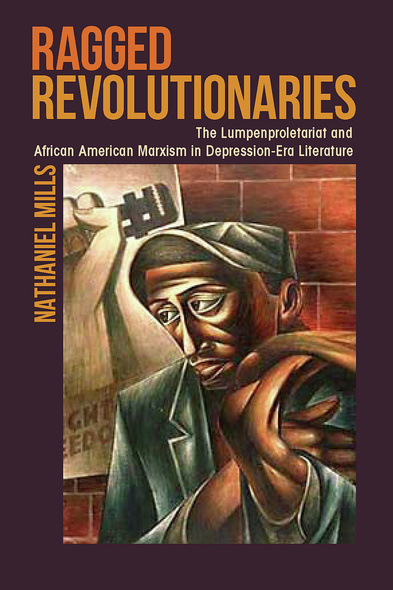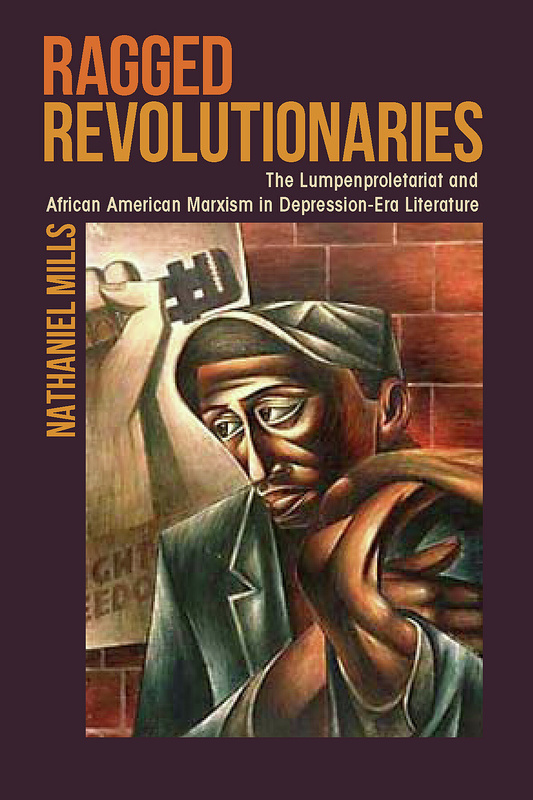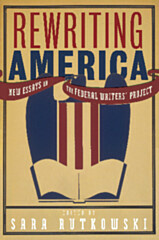Ragged Revolutionaries
The Lumpenproletariat and African American Marxism in Depression-Era Literature
University of Massachusetts Press
In Marxism, the concept of the lumpenproletariat refers to the masses in rags, outsiders on the edge of society, drifters and criminals, of little or no use politically. But in Ragged Revolutionaries, Nathaniel Mills argues that the lumpenproletariat was central to an overlooked yet vibrant mode of African American Marxism formulated during the Great Depression by black writers on the Communist left.
By analyzing multiple published and unpublished works from the period, Mills shows how Richard Wright, Ralph Ellison, and Margaret Walker used the lumpenproletariat to imagine new forms of revolutionary knowledge and agency. In their writings, hobos riding the rails, criminals hustling to make ends meet, heroic black folk-outlaws, and individuals who fall out of the proletariat into the social margins all furnish material for thinking through resistance to the exploitations of capitalism, patriarchy, and Jim Crow. Ragged Revolutionaries introduces the lumpenproletariat into literary study, offers a new account of the place of Marxism in African American literature and politics, and clarifies the political and aesthetic commitments of three major modern black writers.
By analyzing multiple published and unpublished works from the period, Mills shows how Richard Wright, Ralph Ellison, and Margaret Walker used the lumpenproletariat to imagine new forms of revolutionary knowledge and agency. In their writings, hobos riding the rails, criminals hustling to make ends meet, heroic black folk-outlaws, and individuals who fall out of the proletariat into the social margins all furnish material for thinking through resistance to the exploitations of capitalism, patriarchy, and Jim Crow. Ragged Revolutionaries introduces the lumpenproletariat into literary study, offers a new account of the place of Marxism in African American literature and politics, and clarifies the political and aesthetic commitments of three major modern black writers.
Mills's focus on the lumpenproletariat is timely, as it intersects with and helps to inform scholarship on a number of emergent topics in American cultural studies. The recuperation of unpublished manuscripts by Ellison and Walker—used to form a significant part of the author's argument—is also a significant contribution in and of itself.'—Chris Vials, author of Haunted by Hitler: Liberals, the Left, and the Fight against Fascism in the United States
'Mills writes with a rare combination of force and economy. A reader of Ragged Revolutionaries never loses the thread of the argument. Mills's attention to the current scholarly discourse is matched by his careful work in the literary archives and his original readings of Wright, Ellison, and Walker. This is, in many ways, model scholarship.'—Adam Bradley, author of Ralph Ellison in Progress
'Mills' book shines brightly . . . The improvisation of Wright, Ellison and Walker has been supplemented brilliantly by the improvisation of Mills. His intervention is much needed. In all, this is the finest sort of literary scholarship for our times.'—Against the Current
'Throughout, Mills's project reminds readers that marginalized groups possess immense resources for cultural creativity, political agency, and visionary self-invention.'—American Literature
Nathaniel Mills is assistant professor of English at the University of Minnesota.







